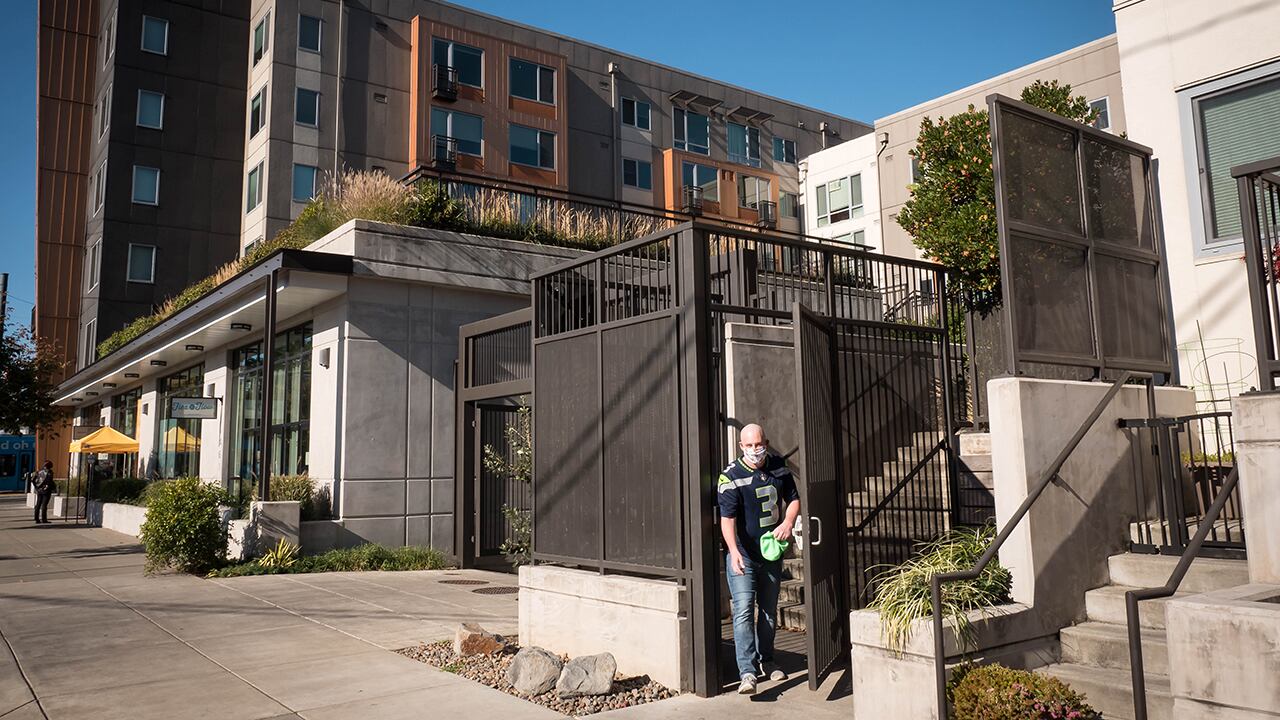In August, Graham Parks was hired to knock on the doors of Portlanders who hadn't yet filled out the U.S. Census.
Parks, 39, a full-time parent who lives in the Piedmont neighborhood, worked about 20 hours a week as an enumerator—that's the technical term for the census workers who seek out people who didn't voluntarily report their households for the census that occurs every 10 years.
Parks' mission was vital: The census determines how many seats Oregon will have in the U.S. House of Representatives and federal funding for a wide range of programs from highways to Head Start. In fact, Oregon is widely expected to get another congressional seat out of this census, because of its rapid population growth.
The census is so important that Gov. Kate Brown allocated $7.5 million of state funds to educate hard-to-count groups about the importance of the census to make sure the feds got it right.
Parks says they didn't.
"If we did the job correctly somehow, I sure as hell don't know it," Parks says.
According to the U.S. Census Bureau, just under 70% of Oregonians filled out census forms independently this year, 2% higher than the last census—leaving 30% in need of enumeration, a process the Census Bureau stresses is a way to account for "hard to count" groups, including BIPOC communities and houseless people.
Every afternoon, Parks donned a black bag lettered with the word "Census" and a laminated badge on a lanyard as he scanned the list of addresses on his caseload assigned by an algorithm based on location. Then he'd start knocking on doors.
But Parks soon encountered a big problem: apartment complexes. About 53% of Portlanders live in rental housing, according to the Census Bureau, and an increasing number of them live in large, multifamily complexes with a security door or gate.
At such complexes, Parks often couldn't get to doors of the units inside. In complexes ranging from 10 to hundreds of units, he often couldn't get past the front door. It's a problem exacerbated by the COVID-19 pandemic, as people work from home and avoid contact with each other.
He knocked on office doors with no response, called property agencies and got met with silence after office managers deferred to headquarters for permission, and encountered hesitancy from managers to share head counts for their units. Sometimes, managers refused to let him in—and in other cases, managers complained they'd already dealt with other enumerators.
Parks has no idea how many units he missed. But every day at secured complexes, he encountered obstacles. He got creative.
"I ended up just shouting at the sides of large apartment buildings sometimes," Parks says, "and that kind of gave me an edge in getting cases completed. But that's if you're willing to shamelessly yell at the side of a building. Or you see someone sitting on a balcony up three flights and you yell, 'You want to do something free and easy for your country?'"
The Census Bureau stopped counting Oct. 15 and its results will be delivered to President Trump on Dec. 31. In a statement last week, the bureau announced it had accounted for 99.9% of Oregon households.
But four enumerators and two field supervisors who spoke with WW doubt that statistic based on their own experience. They fear the result was a drastic undercount.
The Census Bureau told WW in an email that it stands by its assertion of success. A spokesperson said the bureau is "not an enforcement agency" and that it "work[s] with management companies on a solution to get residents counted." The bureau said it did not close cases until a household was successfully counted, but provided few details on how it defined such success.
The enumerators who spoke to WW appear to be among the first in the nation to go on the record describing failures in the census.
"There's so many reasons why this is really devastating to hear," says Marchel Hirschfield, political director at the Asian Pacific American Network of Oregon, "because Oregon has been pressing for the census to be extended so these issues could be worked through." APANO is one of the organizations that took part in state-funded outreach efforts to educate hard-to-count populations about the census.
Critics say the Trump administration never seemed very interested in an accurate count. It even sought to stop the process two months early, a move the courts blocked but one that sources say still created widespread confusion among census workers at the bureau.
Compliance with enumerators is required under Title 13 of the United States Code, which mandates that apartment managers grant enumerators access to their units or provide a head count for those units if the occupants are unresponsive.
But census workers tell WW that while they reported to their superiors when apartment managers refused to grant access, they never saw the Census Bureau pursue any consequences.
Parks, who also worked on the 2010 census, says that "usually the problem would be a concierge or staff person who says, 'No, I need authorization,' and you end up on a wild goose chase in finding someone to tell this gatekeeper employee to let you in."
Adam Perryman, another Portland enumerator, tells WW that 80% of the newer apartment complexes in his daily caseloads that he visited or tried to contact responded with resistance to his request to collect census data.
Perryman says he contacted property managers via telephone, left multiple voicemails, and often never heard back. He says only a quarter of them eventually allowed him to do his work.
"There's a dehumanizing quality to going to places like that and knowing that you're likely going to get resistance," says Perryman. "We're not pushovers. We're dedicated to doing our job. We didn't expect that knee-jerk reaction of, 'Census worker here, don't let them in.'"
Deborah Imse, executive director of Multifamily NW, says her guild tried to inform apartment landlords about their duty to open complexes to enumerators. "The housing industry has worked together to alert fellow associations to situations where members may be obstructing the census process," Imse says. "Once alerted, we conduct outreach and education to rectify any situations we think require our attention."
The enumerators that spoke to WW declined to name specific buildings and owners that resisted enumeration efforts, citing the oath they take to never release information about census respondents. The U.S. Code states the penalty for breaking this oath can be a fine of up to $5,000, up to five years in prison, or both.
"We take this confidentiality thing seriously," says Parks. "We don't want to tarnish the one thing we've got when you walk into a place, which is the reputation of the bureau being tight-lipped about not divulging information."
Two field supervisors, who oversaw groups of enumerators, also spoke to WW under the condition of anonymity. Supervisors tell WW that access to most units can be attempted six times before "maxing out." When units are maxed out, they tell WW, they're counted as "completed" in the census database, even if no data or head count was collected. Supervisors say when they called property agencies that didn't comply, they were occasionally met with strong hostility.
Both supervisors say there were large apartment buildings where countless units hadn't been enumerated, but the cases were closed and marked as complete.
Apartment buildings have been around a long time, of course, and the Census Bureau knows it undercounts renters. The bureau uses a variety of tactics to compensate for the undercount, such as sourcing information from other federal agencies.
The Census Bureau told WW it consults administrative records when counting by enumerators proves fruitless, and wrote: "Our analysis shows very high confidence the administrative records are complete and correct."
Tom Wolf, a constitutional lawyer and fellow at the Brennan Center for Justice, says the administrative data the Census Bureau uses to fill in the gaps often underrepresents the racial and ethnic minorities that most often constitute those gaps in the first place.
"The bureau itself says [the census] is all about hard-to-count groups. That subset of people are also underrepresented in administrative records," says Wolf. "Good records don't exist for all people in the country and tend to reflect racial and class differences that other aspects of American society do."
Keshia Morris Desir, census director of Common Cause, calls it an issue of "monumental proportions when talking about representation."
"Renters are mostly people of color and immigrants," says Morris Desir. "We're talking about populations that are already vulnerable and often don't have their voices heard in the political process. This is just another barrier."

